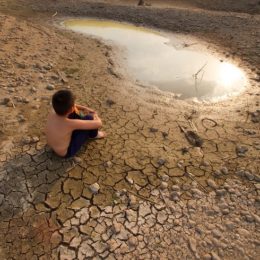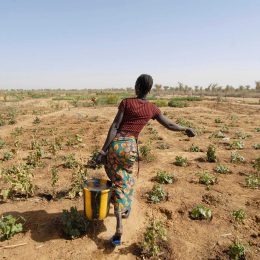Global Water Watch: app with worldwide water information
Societies and economies are under threat because of the unreliability of per capita water resources due to climate change, non-sustainable use and political instability. Worldwide water information is essential to address this fundamental challenge. To stimulate access to water information, thDeltares has – with its partners World Resources Institute (WRI) and World Wildlife Fund (WWF) and with financial support from Google.org - developed a tool providing world-wide, high-resolution, near-real-time, water data.

Water equality across society and sectors
One ambition is to establish an equal balance for water in our society and between sectors; another is to manage climate-change-induced floods and droughts. To help achieve this balance, Global Water Watch will provide public information about available freshwater resources. The platform will make extensive use of AI algorithms to convert earth observation data into relevant water information by merging those data with available local measurements.
Artificial Intelligence
Deltares and partners will use AI to identify and classify existing water bodies and to generate information about water dynamics in near-real time. Water variables derived directly from satellite images without proper interpretation are inadequate for decision-makers facing questions like “How much water is stored in my reservoir?”, “Do we have enough water to irrigate crops this year?”, “How does the upstream country manage its water resources?”. The Global Water Watch platform will generate the water information needed. Björn Backeberg (Deltares): “We will use satellite data, machine learning and cloud computing to provide detailed and near-real-time water information to ensure sustainable water use and the management of extremes, transparency between riparian states, across sectors and groups in society, with greater equality as a result.”
Roles in this partnership
Deltares focuses on remote sensing and machine learning algorithms in the field of water and the subsoil. WRI’s role in the project is working on front-end user requirements and use case development. WWF’s role is with regards to stakeholder engagement and convening dialogue with local communities. Google.org is the philanthropic arm of Google. Their goal is to help solve some of humanity’s biggest challenges — combining funding, innovation, and technical expertise to support underserved communities and provide opportunity for everyone.





